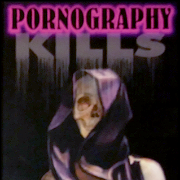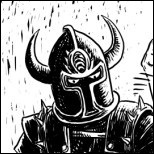|
The main thing is that martials are already heavily discouraged from multiclassing. The last unique core feature a fighter gets is at level 9. Everything after that is things it's already gotten before, while other classes are getting more powerful features. So you've got this natural incentive to multiclass because the back end of your class is terrible, so they added that rule to try and keep you hemmed in. Does it break the game? No. Read the description of the polymorph spell. Game breaks at level 7.
|
|
|
|

|
| # ? May 29, 2024 05:25 |
|
What Quadratic_Wizard said. If you multiclass as Wizard, you pay the price of missing out on your end-game spell slots. If you multiclass as a Fighter, you can't lose "part of an attack", and moreso if the class you're switching also has multi-attacks, so they had to add that rule.
|
|
|
|
Are there even any appealing hypothetical builds that would make use of combining the Extra Attack features of two classes?
|
|
|
|
It was decided that "multiple attacks" are the Fighter's Thing. But then they gave it to other classes anyways because lmfao 5e, so then they tried to think of why you'd stay fighter instead of multiclassing out, and decided on "well every other class misses out on something when they MC, so fighters miss out on those extra attacks! Now just like every other class they don't want to MC without losing something! It's the 5e team not actually understanding what carrots or sticks are or how to operate them anywhere near a non-wizard, and not wanting to even bother thinking up good class abilities for fighters. So it's the 5e team also being laughably inept and lazy.
|
|
|
|
If you're not following that multiclassing rule: 2 attacks at level 5 as Fighter 5 3 attacks at level 10 as Fighter 5/Barbarian 5 4 attacks as level 15 as Fighter 5/Barbarian 5/Ranger 5 5 attacks as level 20 as Fighter 5/Barbarian 5/Ranger 5/Paladin 5 Or however other order you want to take the other classes, and with the normal caveats of how unlikely it is to go the distance to level 20 anyway Compared to doing it straight: 2 attacks at level 5 as Fighter 5 3 attacks at level 11 as Fighter 11 4 attacks at level 20 as Fighter 20 So if you actually don't go to the distance and only make it to level 15, you're getting as many attacks as a level 20 Fighter, and you still have Action Surge anyway. Probably Fighter / Paladin / Ranger / Barbarian in that order would give you as much interesting stuff as possible on the way there. And maybe a Monk instead of a Barbarian.
|
|
|
|
fool_of_sound posted:And then of course you have the perennial shitbirds who keep claiming that only a bad GM would run 5e. Isn't this exactly the same claim as "this game is good because a good GM can fix it"?
|
|
|
|
AlphaDog posted:Isn't this exactly the same claim as "this game is good because a good GM can fix it"? Going up to a group in the middle of having fun and saying: "your game is bad by definition" is the kind of spergy BS that keeps people from being invited to play. Telling a group: "This game is only this good because our GM is great" is actually pretty different.
|
|
|
|
FRINGE posted:Telling a group: "This game is only this good because our GM is great" is actually pretty different.
|
|
|
|
AlphaDog posted:Isn't this exactly the same claim as "this game is good because a good GM can fix it"? No
|
|
|
|
Splicer posted:"This game doesn't need to be good because a good GM can make it good", which is what AlphaDog was referring to and what a number of 5E fans/designers have said unironically. This is exactly what I meant. "A good GM will fix it" means that a bad GM won't fix it and will run it as-written. Let me rephrase then. I'm 100% OK with the statement "Only a bad GM would run 5e" as a response to "It's ok because a good GM will fix 5e". Elector_Nerdlingen fucked around with this message at 01:17 on Aug 17, 2015 |
|
|
|
Mendrian posted:Also one of the things that's hard about 5e discussion is that there really isn't that much to discuss (yet). There aren't any whacky builds that haven't already been discovered and there isn't a lot of optional material to mix and match. Most of the campaign material has been gone over. Really what this thread needs is cool stuff that is actually happening in people's games since that and endlessly complaining about the mechanics is all we have left. Yeah, I guess this is fair. It's not that old and there isn't that much material out there to discuss yet. I hadn't really thought about it that way. Thanks. I do really appreciate the houserules that people post. Keep it coming! edit: I wasn't trying to be critical of the thread in general, just looking for broader horizons. imagine dungeons fucked around with this message at 01:19 on Aug 17, 2015 |
|
|
|
AlphaDog posted:Let me rephrase then. I'm 100% OK with the statement "Only a bad GM would run 5e" as a response to "It's ok because a good GM will fix 5e". So you're still saying that anyone who runs 5e is by definition a bad GM? Cause that's what you appear to be saying. If so, you are exactly the shitbird I was talking about.
|
|
|
|
AlphaDog posted:Let me rephrase then. I'm 100% OK with the statement "Only a bad GM would run 5e"
|
|
|
|
Splicer posted:If they want structure, crunch, and grids, consider running 4E. 5E has all these things, but does not use them as well as 4E. What exactly does 4E do that's so much better? I remember everyone making GBS threads on 4e when it came out, and 3.5e was the big thing. Kibner posted:"Critical Role" is one of the shows created by the "Geek and Sundry" channel on Twitch. This particular show is a once a week thing (I think) and is a live cast of a 5e campaign. One GM and six players, IIRC. Oh wow that sounds rad, and it would be nice to see the game in action. Darwinism posted:This thread definitely gets echo-chambery about 5E, but there are actual good, solid reasons to dislike the game. It's bad at the stated design goals, caster supremacy is back, and big parts of it are straight up lifted from prior editions with maybe a couple words changed here and there. And that's not even all of it's problems. I would like a tear down of what's so bad about 5e. I'll bring up with "Hey I did some research, and here's what I think, what's your opinion?" But I really want to hear real criticism, because I remember 3.5e when 3e was "better," 4e when 3.5e was "better," and now I'm hearing it again, where 4e is now "better." Please don't take this the wrong way, but I really want to know what's being done wrong! I want to have fun at my table, and if there are legitimate issues, I know my players will table it.
|
|
|
|
gradenko_2000 posted:What Quadratic_Wizard said. If you multiclass as Wizard, you pay the price of missing out on your end-game spell slots. If you multiclass as a Fighter, you can't lose "part of an attack", and moreso if the class you're switching also has multi-attacks, so they had to add that rule. This (and other good posts) cover about what i figured. I was considering, though, that cantrips just level and add free hits on their use, while attacks have to roll each extra one. I feel like turning attacks into cantrip style actions might not be a terrible idea. Crits, such as they are, and Savage Attacker aside, how good or bad an idea is this?
|
|
|
|
Turtlicious posted:What exactly does 4E do that's so much better? This of course means it's a videogame for WoW babies. Turtlicious posted:I remember everyone making GBS threads on 4e when it came out, and 3.5e was the big thing. I mean it has its issues, but exactly 0 of these issues were among the ones complained about, or were all holdovers from 3E (most of the book is about combat! Social stuff is just rolling dice!) Splicer fucked around with this message at 02:22 on Aug 17, 2015 |
|
|
|
If you just want to go raid some dungeons and kill goblins, 5e is actually pretty good. There are some real problems with the math though. Look at the monster creation rules and CRs, and then use the table that gradenko posted earlier in the thread instead. The problem is that D&D 5e is supposed to be "Theater of the Mind" when it really doesn't do a good job of that. 4e said gently caress it, this is a miniature tactical combat game, so at least it's honest. There are some real issues with martial classes versus spellcasters. Get ready for spellcaster supremacy. Bards used to be one of the weakest classes in previous editions. Now they are a full caster, and guess what, they are one of the best classes in terms of fun and power. It isn't terrible at what it does. I think what people get up in arms about is that it could be much better, and should be, since many of the issues in 5e were solved in previous editions.
|
|
|
|
Moinkmaster posted:This (and other good posts) cover about what i figured. Eldritch Blast makes an attack roll for each shot, and they can hit different targets. Then again it can also be boosted to 600 feet and do knockback per hit so who knows.
|
|
|
|
Turtlicious posted:I'm the GM, my group wants to switch from Dungeon World to DnD, they want something more structured and crunchy, with defined turns, grids, and all that. That means I have to learn DnD 5e, (They saw it on "Critical Roll" w/e that is and are in love.) I've never run a pre-genned adventure before, and normally just "wing it" what's some good resources for a guy like me? Like someone said, you can go watch a bunch of episodes that they've streamed on geek and sundry, and the first set are up on the youtube channel as well. Things to remember are they're all like voice actors and have been playing as a group for a long time, so they have good chemistry and characterization. The main reason they're actually playing 5th ed (actually quite a few houserules and poo poo like that going on) is for flow of combat with a large group while people are watching. They were playing pathfinder before that. They're just around the levels where you start to really see caster supremacy (9th/10th or so). If you watch some episodes, you can really see that the casters (druid, bard, sorc, cleric) kind of lay down solutions to all sorts of things, the rogue and ranger tend to do stealth stuff, and the barbarian mostly yells and distracts enemies. The rogue has a class option for big alpha strike damage (with circumstances), the ranger consistently hits but not for impressive amounts similar to the barbarian. There's another guy that plays a converted gunslinger, whom I literally forgot about while typing this up. He does some consistent damage in fights but mostly creates/modifies/etc to things out of fighting. The DM does a pretty good job of giving situations where the non-casters can have a big impact, but also the other players leave that space open, even though they realistically could have spells and crap to cover it. Basically, they're a fun group to watch and have strong characters, and have a good time watching other people in the group do stuff as well as doing stuff themselves. The advantage mechanic works well with how they play it, and a lot of the other poo poo I think gets played a bit loose or house-ruled. I'd really say to watch multiple episodes, because I'm pretty sure just going through the books and playing RAW is going to give a different game than what they want. If you have a solid group you're going to be able to have fun with most any system. D&D problems tend to be non-casters have limited combat options, and are able to solve (in general) 1 out of combat situation. Casters have a plethora of combat options, and tend to have a spell that can solve almost any out of combat situation. 4E uses a system called AEDU (at-will, encounter, daily, utility) for abilities for classes which gives a more uniform amount of "stuff" any given class can do and how frequently. The math side is a lot tighter, in regards to stuff like how fast defenses/attack go up, how much damage abilities do, monster stats, and the like. It has its own problems, which I'm sure other people can give in better detail. Coming from Dungeon World be prepared to ignore basically everything non-combat from the books, and in general be on the lookout after low levels for the spellcasters getting all the fun. It doesn't happen automatically, but if you took Wizard's ritual from dungeon world and took away the part where you get to set conditions, that is the sort of playbook available to full spellcasters in general. Chances are your players won't always do this, and some people legit don't care that they can't do half as much as someone else, but it'll help the health of your group if you keep an eye on it. There isn't a nice fail-forward mechanic built in, but there are a lot of chances for you to apply DM'ing techniques from DW to D&D, and those can only help. In fact, I'd consider pulling things like group-based world building, intra-party bonds, campaign front stuff, and DM moves and finding a way to work those in. Probably be prepared to have a harder time controlling tension in combat, as others have said it can be annoyingly difficult to judge how dangerous something is based on the challenge rating. It'll probably take a few sessions, and a bit of elbow grease, and your guys will have a lot more fun than most people playing 5E.
|
|
|
|
I think it's disengenuous to make the claim that "everyone" poo poo on 3.5 and "everyone" poo poo on 4e and therefore, who can tell what's real?! It isn't the same people making these complaints; the group that was pleased with 3.5 is largely also pleased by 5e. Likewise, those are the same people who hated 4e. 4e has pretty much been under attack by the same puddle-shallow arguments since it was released and for some reason those very same people are still making GBS threads on 4e even today. I don't deny 4e is a flawed game but it isn't a mystery why the most popular complaints exist in a far afield, lonely circle of the venn diagram labeled "flaws in 4e."
|
|
|
|
Turtlicious posted:I would like a tear down of what's so bad about 5e. I'll bring up with "Hey I did some research, and here's what I think, what's your opinion?" But I really want to hear real criticism, because I remember 3.5e when 3e was "better," 4e when 3.5e was "better," and now I'm hearing it again, where 4e is now "better." Honestly, every edition of D&D fixes what the designers saw as big problems with the previous edition and are thus usually better than the edition that preceded them, at least in the ways they tried to fix. Second edition had really inconsistent resolution mechanics, so third edition based everything on "roll a d20 and add your modifier, higher is better". Third edition had major problems with caster supremacy, so fourth edition put every class into the At-Will/Encounter/Daily structure so they'd have equal mechanical importance in a fight and thought about what they wanted a Fighter to actually do in a fight and turned all the big noncombat spells into rituals that anyone could take a feat to use. People always say that the new editions are worse, but that's because people generally just hate change. The problem with 5e, and the reason people keep bringing up 4e in this thread, is that the problem with 4e the designers tried to solve was "people on the internet got really mad at 4e and don't want to see any of it in the next edition". Well, that and none of the designers seem to really understand why 4e did any of the good things it did. (And before anyone says anything, yeah I know the older editions have good things going for them that either got left behind or warped into something bad in later editions. My point is, we're saying that as people looking back on thirty-some years of D&D and not people who are insulting the new edition without actually having any basis for that because the new edition just came out and no one really knows how it plays yet.) Lurks With Wolves fucked around with this message at 02:24 on Aug 17, 2015 |
|
|
|
Turtlicious posted:Please don't take this the wrong way, but I really want to know what's being done wrong! I want to have fun at my table, and if there are legitimate issues, I know my players will table it. 5e's biggest problem, in my spergy shitbird opinion, is that it is a pale imitation of 3.5 with a $200 mark-up.
|
|
|
|
Mendrian posted:the group that was pleased with 3.5 is largely also pleased by 5e. Lurks With Wolves posted:the problem with 4e the designers tried to solve was "people on the internet got really mad at 4e and don't want to see any of it in the next edition" And as always, I really must bring up that every metric available showed 4E spanking Pathfinder saleswise until Essentials messed the bed, not even counting the money fountain that was Insider. So once you hit the real world "everyone" wasn't exactly the majority of the RPG playing public.
|
|
|
|
I meant to mention in my too-many-words post that I really enjoy watching critical role, to the point that I felt interested in 5E. I then went and reconfirmed why I don't play 5E. About the only things that I find myself liking are advantage and a pile of spells requiring concentration, which now that I think about it I have no idea of if they're running house ruled versions of those at all. The DM does a pretty interesting job of letting the casters do crazy poo poo if they describe it well, but also puts in a lot of drawbacks that skip mechanical effects as well, and it works out fairly cinematically. I don't think by RAW a 30 damage fireball can destroy a 5-foot diameter stone pillar, but it sure worked out fairly amusingly. He also does the same for the non-casters, as a single attack from a great-axe probably can't create a 10-ft diameter hole in a wooden floor, but he let the barbarian do so to drop from the ceiling into a fight.
|
|
|
|
ZypherIM posted:The DM does a pretty interesting job of letting the casters do crazy poo poo if they describe it well, but also puts in a lot of drawbacks that skip mechanical effects as well, and it works out fairly cinematically. I don't think by RAW a 30 damage fireball can destroy a 5-foot diameter stone pillar, but it sure worked out fairly amusingly. He also does the same for the non-casters, as a single attack from a great-axe probably can't create a 10-ft diameter hole in a wooden floor, but he let the barbarian do so to drop from the ceiling into a fight. For pure-rules tactics games theres warhammer (and the various other tactical miniture games dont know the names of).
|
|
|
|
FRINGE posted:Regardless of game, I cant imagine doing a narrative game where the GM isnt doing things like that. Fun stories are the point. Every iteration of Warhammer has worse tactical balance and choice than 4e. Warmahorde is a good combo based system and people say good things about X-Wing.
|
|
|
|
Does anyone have good house rules for social situations, since apparently those are always pretty poo poo. What I'm hearing is, (and someone correct me if I'm wrong,) 4e's combat is amazing, and 5e stole a lot of the things people like about 5e and tweaked. People hate that, ontop of that, they made the Fighter a trap class, and if you want to be a swordsman, you should pick something else. ZypherIM posted:<some amazing words!> Thanks man, I'll keep that in mind, and probably add some extra in-house rules about XP for failed rolls and the like. Is 5e, or 4e better for a GM who plans, maybe an hour a week, if that? (and most monsters come from a hat.) Is 5e or 4e better at "Social skills."
|
|
|
|
4th edition is much better for quick planning because it's very easy to build encounters on the fly with the system for doing that. I think they're about equally crappy on rules for social situations though.
|
|
|
|
Turtlicious posted:Does anyone have good house rules for social situations, since apparently those are always pretty poo poo. What I'm hearing is, (and someone correct me if I'm wrong,) 4e's combat is amazing, and 5e stole a lot of the things people like about 5e and tweaked. You might also look into Strike as something of a meet-in-the-middle. It's out of combat resolution is similar to DungeonWorld, but the combat has a lot more crunch and interesting tactical options, sort of like a trimmed down 4e. It plays pretty quickly and is designed to be reskinned to fit your campaign. My admittedly limited experience with 4e is that combat can easily drag out, which doesn't happen in Strike. Strike doesn't have a ton of premade monsters yet, but has fast and easy monster creation rules.
|
|
|
|
I got into a debate with some 4th edition haters, and the argument that they kept bringing up is that while there was variety from class to class, they claimed that within the same class, there's little variety. Claiming that all fighters play the same, all wizards play the same, etc. Which compared to 3.x and 5th, is generally true, for spellcasters. They are more limited in 4th. But to say that of the martial classes seems mind boggling. There's magnitudes more options for martial classes in 4th. I don't mind that spellcasters get to do all sorts of awesome poo poo in 5th. It's that the martials don't. Hell, a simple martial power book that gives a lot of new options that are cool and powerful for martial classes, and an errata/faq to clear up the stupid poo poo is all it would take to fix 5th edition for me.
|
|
|
|
5E has a ton of class balance issues but it's super nice as the DM to not have to track 12 different conditions through 3 hr combats. It also dumped skill challenges which were total poo poo. 13th Age solved some of those problems too, but it's still far too crunchy for my players.
|
|
|
|
alg posted:5E has a ton of class balance issues but it's super nice as the DM to not have to track 12 different conditions through 3 hr combats. It also dumped skill challenges which were total poo poo.
|
|
|
|
Turtlicious posted:What exactly does 4E do that's so much better? I remember everyone making GBS threads on 4e when it came out, and 3.5e was the big thing. If you have some time to read, I did a review of "Wizards Presents: Races and Classes", which was a preview/design document of sorts for 4th edition. It's a good breakdown of what 4th edition insofar as being a response to flaws discovered within 3rd edition and why it's a more well-designed game. http://forums.somethingawful.com/showthread.php?action=showpost&postid=447469512 Turtlicious posted:Does anyone have good house rules for social situations, since apparently those are always pretty poo poo The secret is that every edition of D&D has always been about combat. Non-combat interactions tend to revolve around setting up the board: who do you fight? where do you fight? when and how do you fight? can you skip some fights? can you rig a fight to be really really in your favor? As far as how to adjudicate non-combat interactions: the player wants to do something, they try to convince you that it's totally possible, and either give it to them automatically, you disallow it completely, or you leave it up to a roll. What tends to throw a monkeywrench into this whole thing, and especially with regards to "social situations", is when they either use a spell or a really high skill check to try and skip a bunch of plot. That is, if they need to get inside the royal palace, they either cast a 5th edition Charm on the guard or take a really high 4th edition Intimidate check on the guard to let them pass, rather than go through an interesting breaking-and-entering montage that you had planned out. And my view on that has always been to disallow such behavior. I mean, don't railroad the group into only entering the palace the one specific way you want them to, but given a choice between any number of potential entry points into the palace to do a Mission Impossible-style insertion, or causing a distraction elsewhere across town, or doing a fetch quest, or some other form of chicanery that doesn't come down to a single die roll, the former is much more interesting. Turtlicious posted:Is 5e, or 4e better for a GM who plans, maybe an hour a week, if that? (and most monsters come from a hat.) As someone who GMs by the seat of their pants quite often, 4th edition is really better at that, because you're just reading monster stats off the top of a table:  All you need is the fluff behind it.
|
|
|
|
I like this representation of the monster math for 4e better:
|
|
|
|
Well yes, that's what I based my table off of. What it doesn't cover, and much to my chagrin as something that I only managed to discover so much later, was that the 4e DMG specifies additional rules for Elites and Solos: they should have action points, and they should have additional attacks that they can do on separate initiative counts so that a single Solo is still getting to attack 4 times in a round. ... which means that this was already a problem that was solved even before 5th edition's Legendary Actions and Lair Actions
|
|
|
|
Haha, sorry I didn't catch that in the table. There's a lot of columns! :p
|
|
|
|
fool_of_sound posted:So you're still saying that anyone who runs 5e is by definition a bad GM? Cause that's what you appear to be saying. If so, you are exactly the shitbird I was talking about. Nope, I'm saying that "only a bad GM would run 5e" might be snarky, but it's exactly the response the stupid statement "the game's fine since a good GM will spend hours figuring out how to make it fine" deserves. Elector_Nerdlingen fucked around with this message at 04:43 on Aug 17, 2015 |
|
|
|
13th Age is pretty easy to GM because much like 4e, but not to the same degree, it uses fixed monster math and general abilities. This means that there's literally a web tool that will pump out appropriate fights for your group. http://manticore.brehaut.net/ In an alternate universe, 13th Age was titled Dungeons and Dragons 5th Edition and all would be well. It still has its problems but you can see the 3e->4e->(rules-lighter 4e without a grid) progression in it, and it works pretty well.
|
|
|
|
AlphaDog posted:Nope, I'm saying that "only a bad GM would run 5e" might be snarky, but it's exactly the response the stupid statement "the game's fine since a good GM will spend hours figuring out how to make it fine" deserves. It's exactly a useless response, but whatever.
|
|
|
|

|
| # ? May 29, 2024 05:25 |
|
Turtlicious posted:I would like a tear down of what's so bad about 5e. I'll bring up with "Hey I did some research, and here's what I think, what's your opinion?" But I really want to hear real criticism, because I remember 3.5e when 3e was "better," 4e when 3.5e was "better," and now I'm hearing it again, where 4e is now "better." These were written more as a comparison to 5e, but it illustrates just how much of the system is just warmed-over 3.5e quote:5e is similar to a heavily house-ruled 3.5: quote:I would say 13th Age is a better 5e than 5e
|
|
|



































